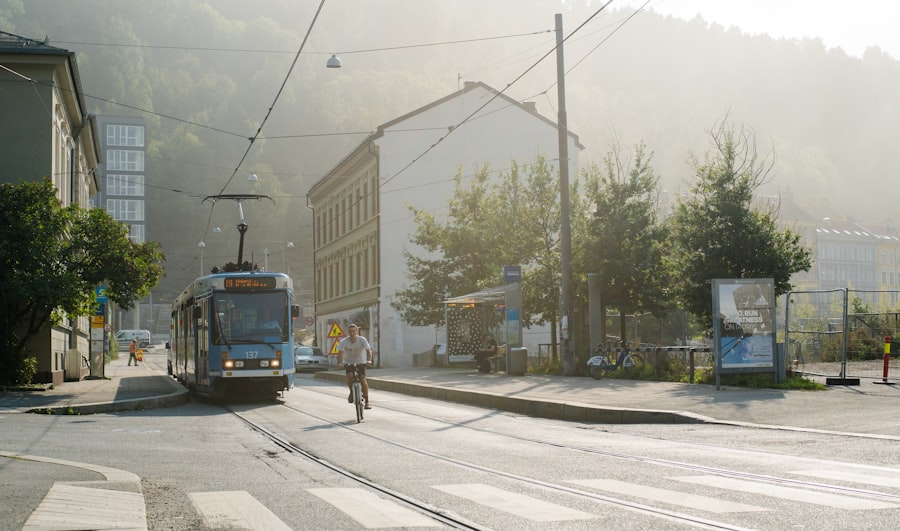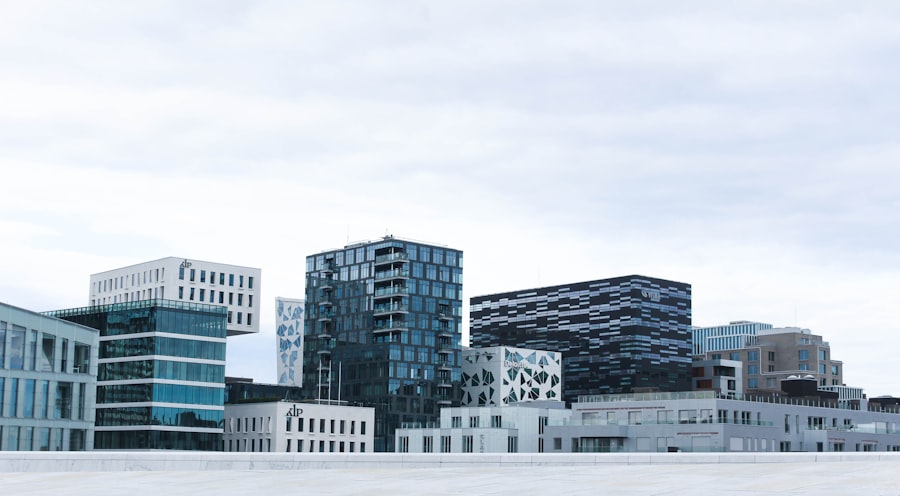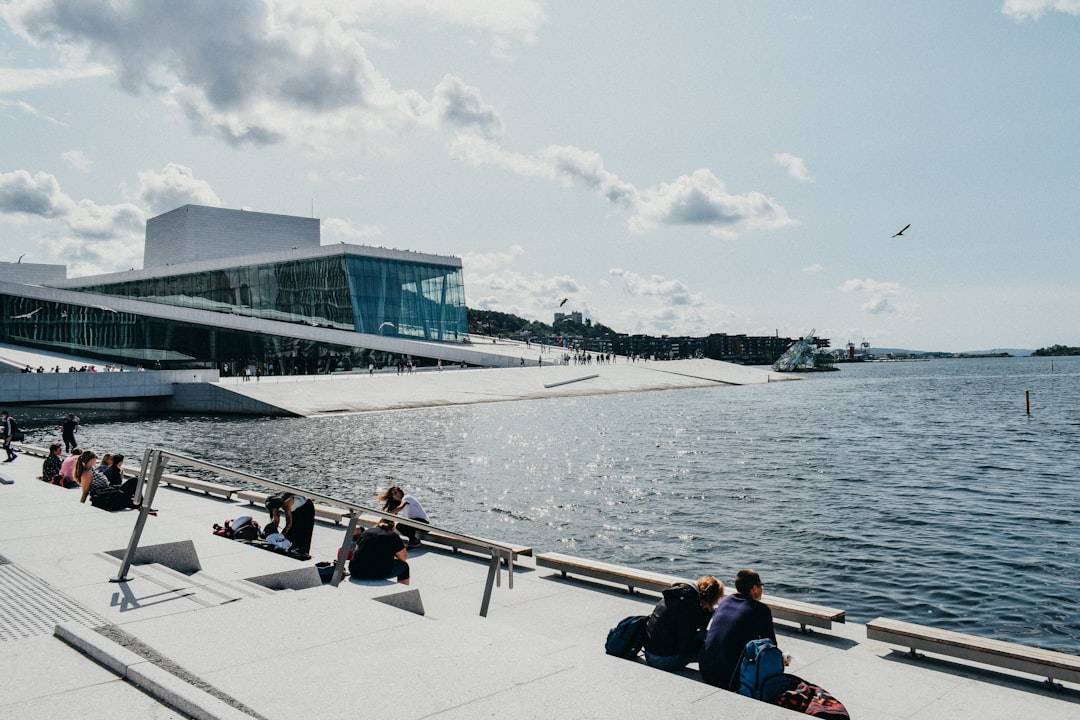The concept of Barnehage, or kindergarten, is deeply embedded in Norwegian culture and society. It serves as a crucial stepping stone for children aged one to six, providing them with a nurturing environment that fosters both social and cognitive development. In Norway, Barnehage is not merely a place for childcare; it is an integral part of the educational system, designed to prepare children for their future schooling and life experiences.
The emphasis on play-based learning, outdoor activities, and a strong connection to nature reflects the values of Norwegian society, where childhood is celebrated as a time for exploration and discovery. For expatriates and newcomers to Norway, understanding the Barnehage culture is essential. The Norway Relocation Group can assist families in navigating this unique system, ensuring that they find the right Barnehage that aligns with their values and expectations.
With their expertise, families can feel confident in making informed decisions about their children’s early education, helping to ease the transition into Norwegian life. Schedule a one-on-one consultation with our relocation specialists to simplify your move to Norway.
Summary
- The Barnehage culture in Norway prioritises early childhood education and care in a holistic and inclusive manner.
- Barnehage in Norway has evolved from a focus on childcare to a more educational approach, influenced by the Reggio Emilia philosophy and the Scandinavian tradition of outdoor play.
- Key principles and values of Barnehage include respect for children’s rights, play-based learning, and a focus on social and emotional development.
- The structure and organisation of Barnehage in Norway is based on a child-centred approach, with a low child-to-staff ratio and a strong emphasis on outdoor activities.
- Educators and caregivers in Barnehage play a crucial role in creating a nurturing and stimulating environment, focusing on building relationships and supporting children’s development.
History and Evolution of Barnehage in Norway
The history of Barnehage in Norway dates back to the early 19th century when the first kindergartens were established. Initially, these institutions were primarily aimed at providing care for children from working-class families, allowing parents to engage in employment while ensuring their children were looked after. Over the years, the concept evolved significantly, influenced by various educational philosophies and societal changes.
By the mid-20th century, Barnehage had transformed into a more structured educational framework, with a focus on holistic development rather than mere supervision. The establishment of the National Curriculum for Kindergartens in 2006 marked a significant milestone in the evolution of Barnehage. This curriculum emphasised the importance of play as a fundamental aspect of learning and development.
It also highlighted the need for inclusivity and diversity within Barnehage settings, ensuring that all children, regardless of background or ability, have access to quality early education. This evolution reflects Norway’s commitment to providing equitable opportunities for all children, laying a strong foundation for their future educational journeys.
Key Principles and Values of Barnehage

At the heart of the Barnehage system are several key principles and values that guide its operation. One of the most significant is the belief in the importance of play as a vehicle for learning. In Barnehage, play is not seen as a mere pastime; it is recognised as an essential component of children’s development.
Through play, children explore their environment, develop social skills, and engage in problem-solving activities that foster critical thinking. Another core value is the emphasis on respect for each child’s individuality. Barnehage educators are trained to recognise and celebrate the unique strengths and interests of every child, tailoring their approach to meet diverse needs.
This child-centred philosophy encourages children to express themselves freely and develop a sense of autonomy, which is vital for their self-esteem and confidence. The Norway Relocation Group can provide valuable insights into how these principles are implemented in various Barnehage settings, helping families choose an environment that aligns with their educational philosophy.
Structure and Organisation of Barnehage
The structure and organisation of Barnehage in Norway are designed to create a supportive and enriching environment for young children. Typically, Barnehage facilities cater to children aged one to six years old and are divided into different age groups to ensure age-appropriate activities and interactions. The staff-to-child ratio is carefully regulated to ensure that each child receives adequate attention and support from educators.
Barnehage institutions can be publicly or privately operated, with public facilities being funded by local municipalities. This funding model ensures that access to early childhood education is equitable across different socio-economic backgrounds. Additionally, many Barnehage centres incorporate flexible hours to accommodate working parents, recognising the diverse needs of families in contemporary society.
For newcomers to Norway, understanding this structure can be crucial in selecting a suitable Barnehage that meets their family’s requirements.
Role of Educators and Caregivers in Barnehage
Educators and caregivers play a pivotal role in the Barnehage system, acting as facilitators of learning and development for young children. They are not only responsible for ensuring children’s safety but also for creating an engaging environment that stimulates curiosity and exploration. Educators are trained in child development theories and pedagogical practices, equipping them with the skills necessary to support children’s growth effectively.
In addition to fostering academic skills, educators in Barnehage also focus on social-emotional development. They guide children in developing interpersonal skills such as cooperation, empathy, and conflict resolution. This holistic approach ensures that children are well-prepared for future educational settings and social interactions.
The Norway Relocation Group can assist families in understanding the qualifications and training of educators in various Barnehage centres, helping them make informed choices about their children’s early education.
Curriculum and Learning Approach in Barnehage

The curriculum in Barnehage is designed to be flexible and adaptable, allowing educators to respond to the interests and needs of the children. It encompasses various areas of learning, including language development, mathematics, science, arts, and physical education. However, unlike traditional educational systems that prioritise formal instruction, the Barnehage curriculum emphasises experiential learning through play and exploration.
This approach encourages children to engage actively with their surroundings, fostering a love for learning that extends beyond the classroom. Educators often incorporate themes related to nature, culture, and community into their activities, providing children with a well-rounded understanding of the world around them. The NLS Norwegian Language School in Oslo offers courses that can help expatriate parents learn about this curriculum and its implementation in Barnehage settings, enhancing their ability to support their children’s learning journey.
Importance of Outdoor Play and Nature in Barnehage
One of the defining features of Barnehage culture is its strong emphasis on outdoor play and connection with nature. Norwegian educators recognise that outdoor experiences are vital for children’s physical health and emotional well-being. As such, many Barnehage centres incorporate regular outdoor activities into their daily routines, regardless of weather conditions.
Outdoor play allows children to explore their environment freely, engage in physical activity, and develop an appreciation for nature. Activities such as hiking, gardening, or simply playing in natural settings foster creativity and resilience while promoting social interactions among peers. This connection with nature is not only beneficial for children’s development but also instills a sense of environmental stewardship from an early age.
Families relocating to Norway can benefit from understanding this aspect of Barnehage culture through resources provided by the Norway Relocation Group.
Inclusivity and Diversity in Barnehage
Inclusivity and diversity are fundamental principles within the Barnehage system in Norway. Educators strive to create an environment where all children feel valued and respected, regardless of their background or abilities. This commitment to inclusivity is reflected in various practices within Barnehage settings, such as adapting activities to accommodate children with special needs or providing multilingual support for non-Norwegian speaking families.
The emphasis on diversity extends beyond individual differences; it also encompasses cultural diversity within the classroom. Educators often incorporate multicultural themes into their curriculum, celebrating various traditions and customs represented by the children in their care. This approach not only enriches children’s understanding of the world but also fosters empathy and respect for others.
The Norway Relocation Group can provide guidance on how families can engage with these inclusive practices within their chosen Barnehage.
Parental Involvement and Collaboration in Barnehage
Parental involvement is highly encouraged within the Barnehage system, recognising that collaboration between families and educators enhances children’s learning experiences. Many Barnehage centres organise regular meetings and events where parents can engage with staff, share insights about their children’s development, and participate in activities together. This partnership between parents and educators fosters open communication and mutual support, creating a strong community around each child’s education.
Parents are often invited to contribute their skills or cultural knowledge to enrich the curriculum further. For expatriate families navigating a new culture, this involvement can be particularly beneficial as it helps them build connections within the local community while supporting their child’s integration into Norwegian society.
Challenges and Criticisms of the Barnehage System
Despite its many strengths, the Barnehage system in Norway faces several challenges and criticisms. One common concern is related to accessibility; while public Barnehage facilities are available, there can be long waiting lists due to high demand in certain areas. This situation can create stress for families who rely on these services for childcare while they work or study.
Additionally, some critics argue that while the emphasis on play-based learning is beneficial, it may not adequately prepare children for more structured educational environments they will encounter later on. There are ongoing discussions about finding a balance between fostering creativity through play while also introducing more formal learning elements as children approach school age. The Norway Relocation Group can provide insights into these challenges, helping families understand what to expect from the system.
The Future of Barnehage in Norway
Looking ahead, the future of Barnehage in Norway appears promising yet requires ongoing adaptation to meet evolving societal needs. As more families from diverse backgrounds settle in Norway, there will be an increasing demand for inclusive practices that cater to various cultural perspectives within early childhood education. Moreover, there is a growing recognition of the importance of mental health and well-being among young children.
Future developments may focus on integrating social-emotional learning more explicitly into the curriculum while maintaining the core values of play-based education. The NLS Norwegian Language School in Oslo offers courses that can help parents understand these trends better while equipping them with language skills necessary for engaging with educators effectively. In conclusion, the Barnehage culture in Norway represents a unique blend of educational philosophy rooted in play-based learning, inclusivity, and respect for nature.
For families relocating to Norway, understanding this system is crucial for ensuring a smooth transition into Norwegian life. The Norway Relocation Group stands ready to assist families in navigating this landscape while providing valuable resources such as language courses at NLS Norwegian Language School to enhance their experience further.
Register for a Norwegian class at the NLS Norwegian Language School now!

